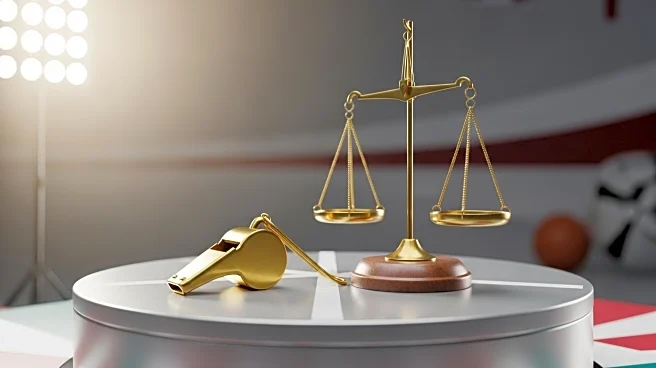What's Happening?
Minnesota Lynx forward Napheesa Collier has publicly criticized the WNBA and its commissioner, Cathy Engelbert, in a prepared statement during her exit interview. Collier's remarks, delivered on Tuesday, highlighted perceived shortcomings in the league's leadership, particularly focusing on accountability issues. Her statement comes in the wake of a controversial play during the WNBA semifinals that resulted in her injury and the ejection of Lynx head coach Cheryl Reeve. Collier's comments have sparked significant attention within the professional sports community, marking a potential turning point in the relationship between the league and its players. She emphasized that the real threat to the league is not financial or related to ratings, but rather the lack of accountability from the league office.
Why It's Important?
Collier's statement underscores growing tensions between WNBA players and the league's administration. Her call for accountability reflects broader concerns about player welfare and the integrity of the sport. The public nature of her criticism, coupled with support from other players, suggests a shift towards more direct advocacy for change within the league. This development could influence future negotiations, including those related to the collective bargaining agreement, and may lead to increased pressure on the league to address player grievances. The situation highlights the evolving dynamics of player empowerment in professional sports, where athletes are increasingly using their platforms to demand systemic changes.
What's Next?
The WNBA and its commissioner, Cathy Engelbert, are likely to face continued scrutiny and pressure from players advocating for change. Engelbert has expressed a commitment to working with players to elevate the game, but the league's response to Collier's criticisms will be closely watched. Future negotiations, particularly around the collective bargaining agreement, may see heightened tensions as players push for improved conditions and accountability. The league's ability to address these concerns could significantly impact its relationship with players and its public image.










